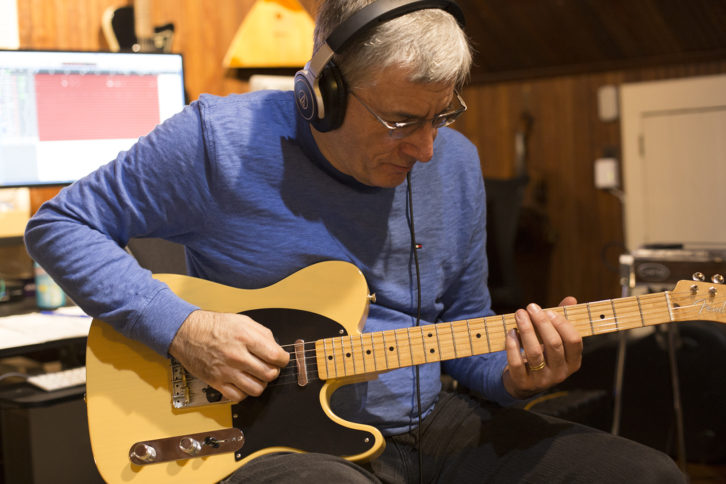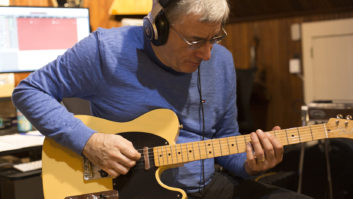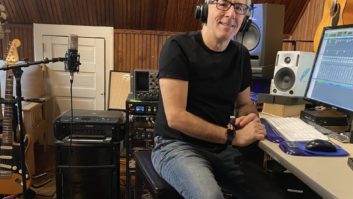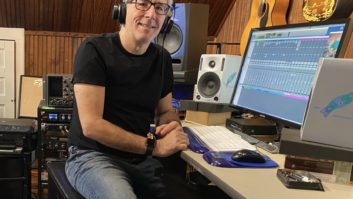If I asked you to name the most useful feature in your DAW, you’d probably answer, “editing capabilities,” “total recall,” “unlimited track count,” “pitch correction,” or one of the many other “major” features. And you wouldn’t be wrong.

I doubt a lot of people would mention the ability to enter descriptive text in the form of track notes (or project notes, depending on how your application implements such a feature). I’m here today to posit that it’s one of the more useful, albeit least sexy, capabilities of your DAW.
Why is the feature so useful? Say you’re recording a band or ensemble, and you use the track notes to enter the names of the mics you deployed for each instrument. Such information could be critical should you need to re-create the session at a later date. But if you didn’t take notes, and you had to come back six months later to make a change? Could you re-create the setup from memory? Not likely.
Here’s another hypothetical example: I’m recording a project, and one of the parts I track is a guitar solo overdub. When recording it, I have one of those moments where I’m totally locked in and nail a killer solo. Because it was a moment of inspiration, it’s not something I can easily redo with the same feeling. But while most of my bandmates love the solo, the vocalist doesn’t like the way its ending notes overlap into the first measure of the verse that follows it. She asks me to change the ending.
Several days later, as I’m getting ready to fix it, I realize that I can’t remember the pickup setting on the guitar, nor which preamp I tracked through. Getting the sound to match at the end of the solo is now going to require a lot of work and may never sound entirely right. Had I taken a minute to type that info into my track notes when I did the original solo, I wouldn’t have had a problem.
Read more Mix Blog Studio: Green Stories From the Music Biz.
Notes will be handy for any audio you record in your studio. What was the signal chain on those vocals? Did you use a compressor on input? If so, how was it set? How far off the mic was the singer? Recall sheets are also quite useful for remembering settings of analog processors, but the beauty of track notes is that they’re saved as part of the session file.
You can also use your track or project notes to keep tabs on your progress and to note something that still needs doing. If you’re jumping from project to project, as I often do, you’re not necessarily going to remember where you left off with a given song. So writing down stuff like, “Still need to comp the vocal,” or “Re-record this keyboard part with a different sound”—whatever it is—can jog your memory when you reopen the project.
Forgive me if I sound preachy. In truth, I’m as guilty as anyone when it comes to forgetting to take track notes. I get caught up in the moment when recording and don’t always remember to type in the info that I should. But after learning some hard lessons, I’m making a big effort to be more systematic about it, which is why it’s on my mind and I’m writing about it.
So, I hope you’ll join me in taking more advantage of the mundane-yet important text entry features of your DAW. It doesn’t take long to type in the info, and it just may save your ass down the road.



